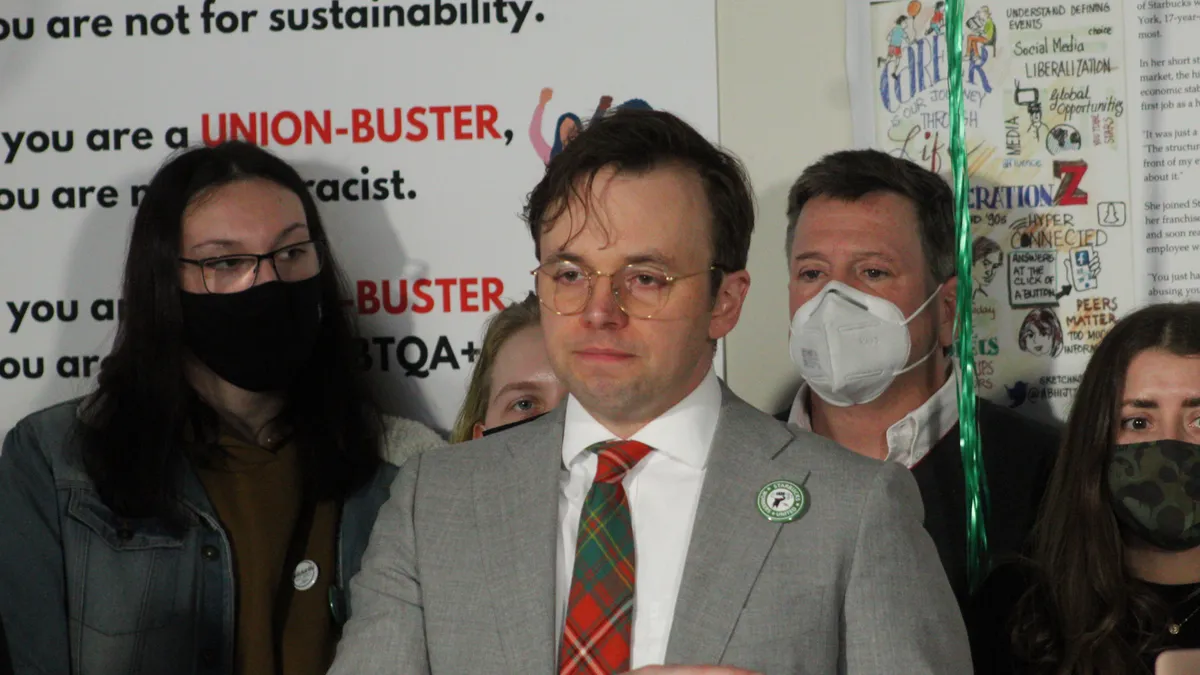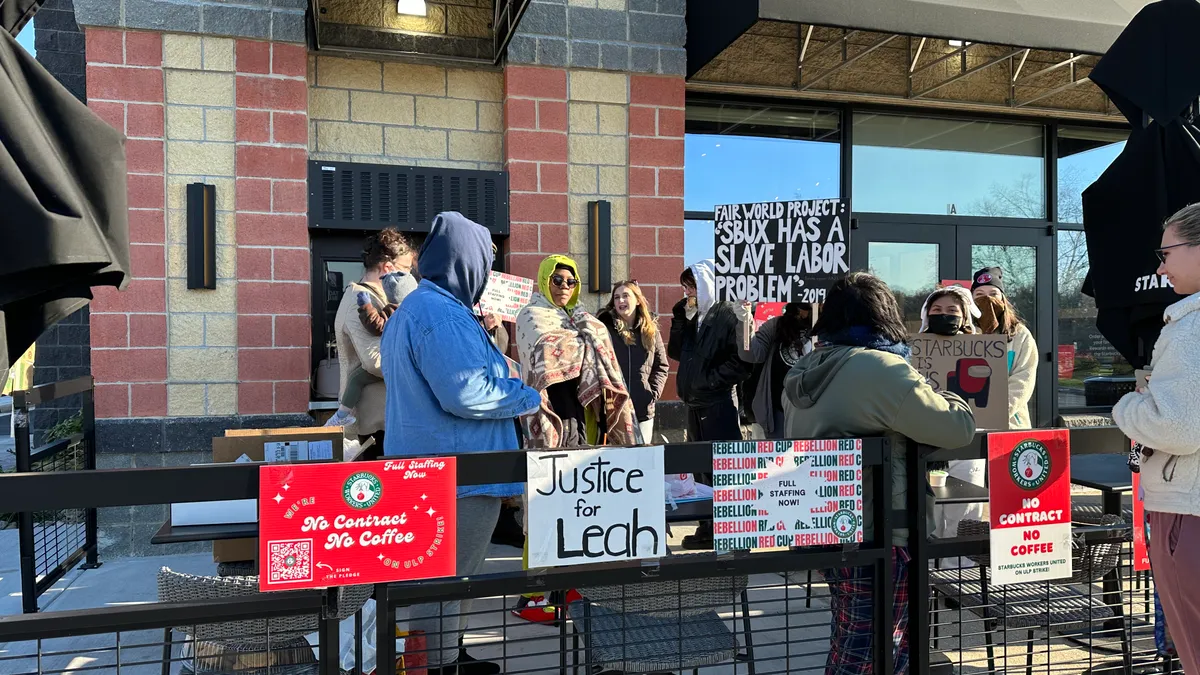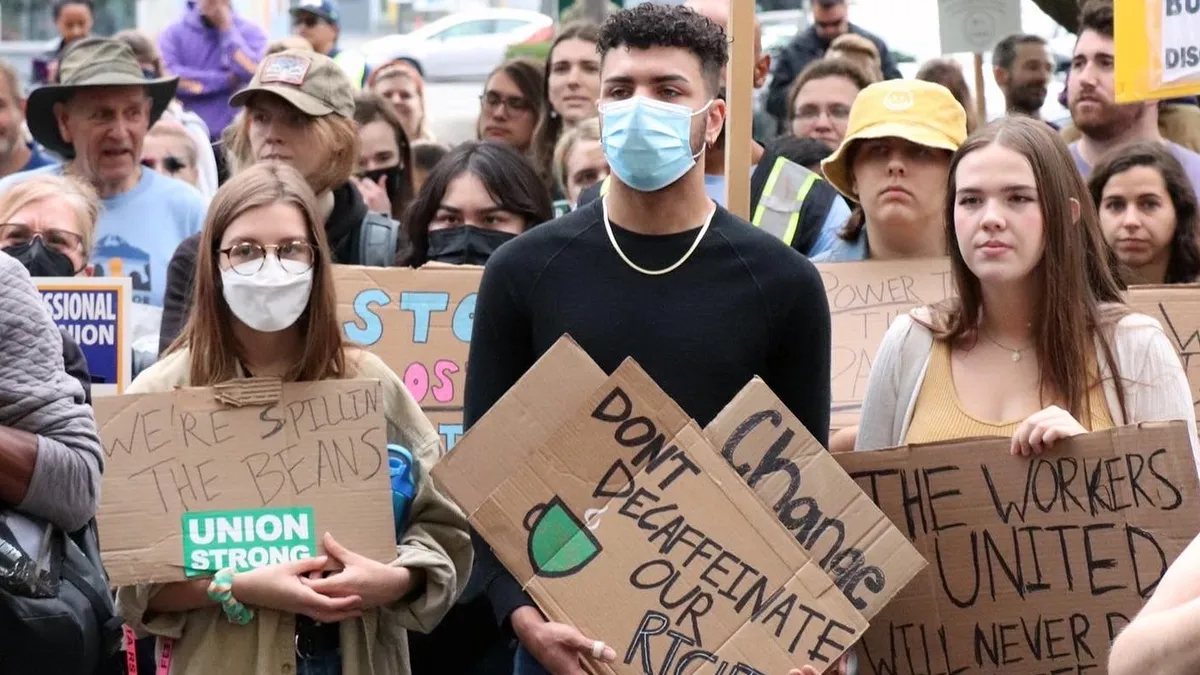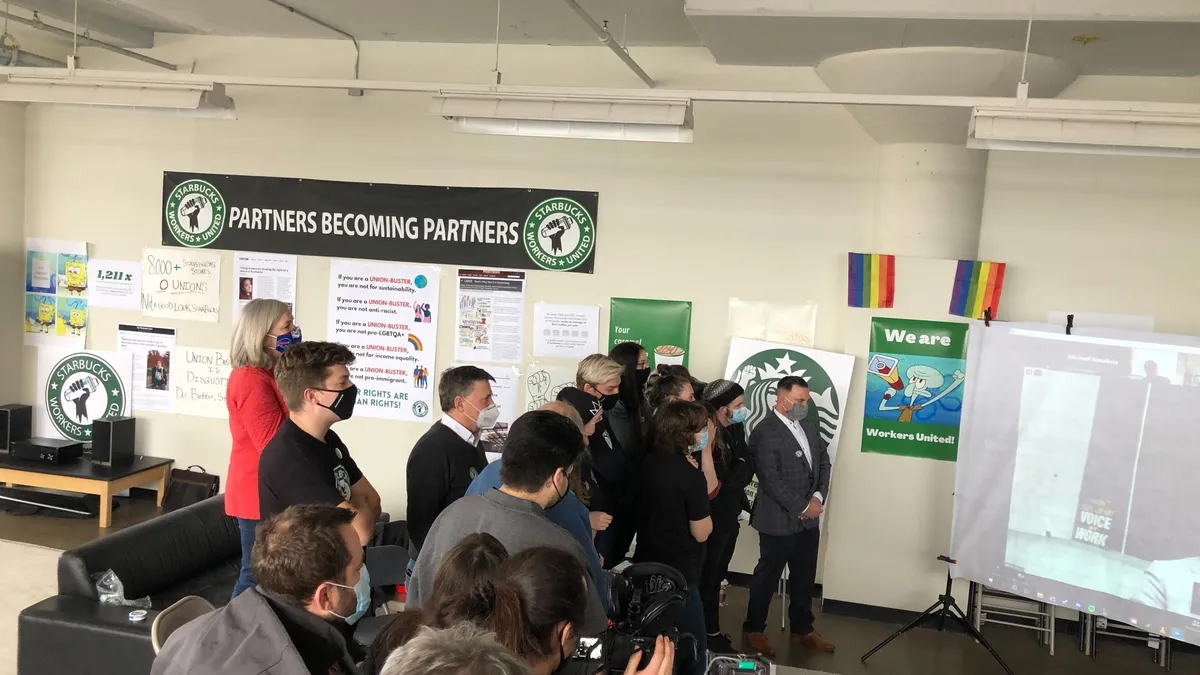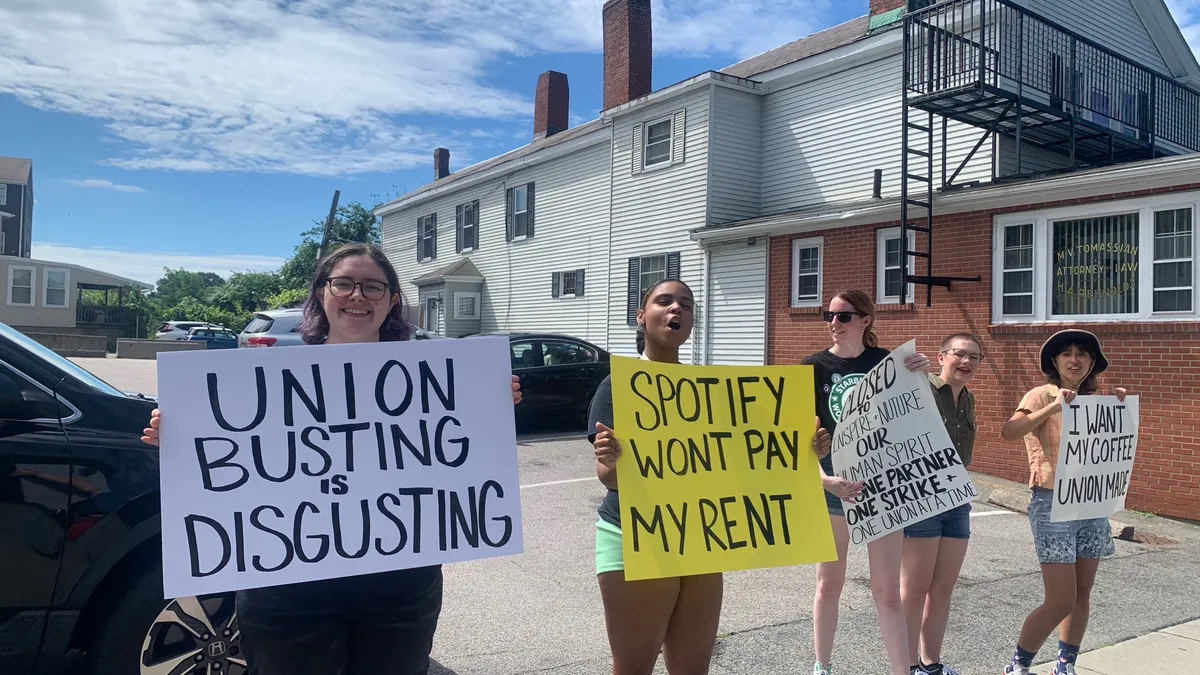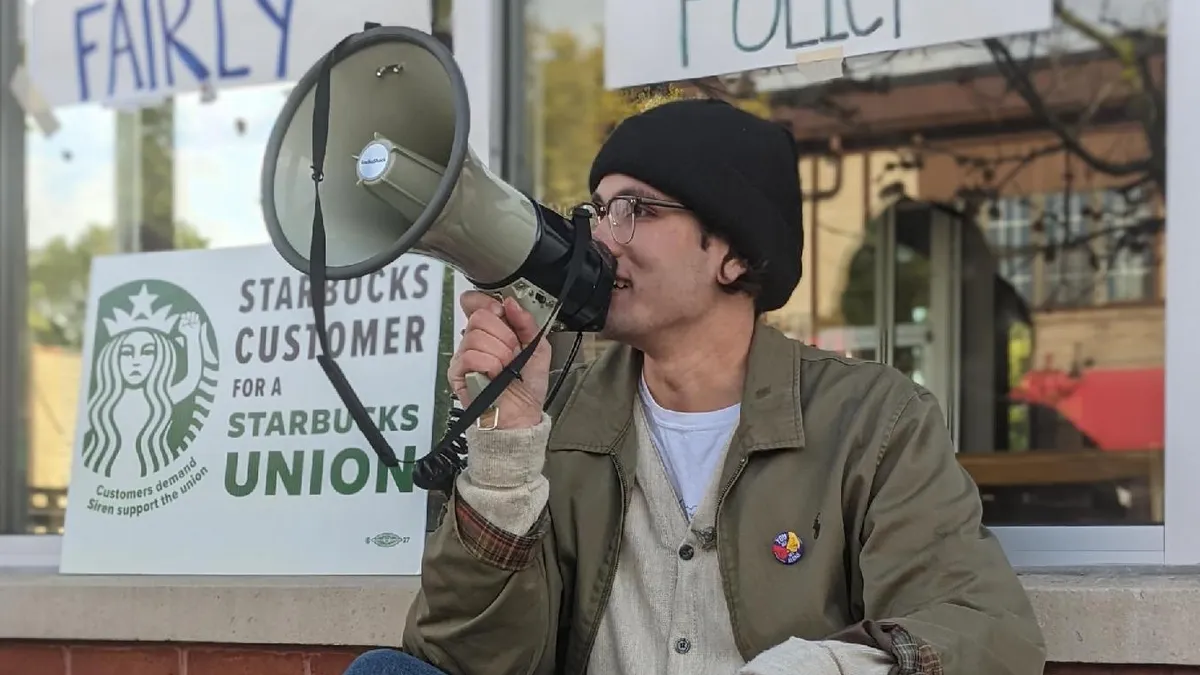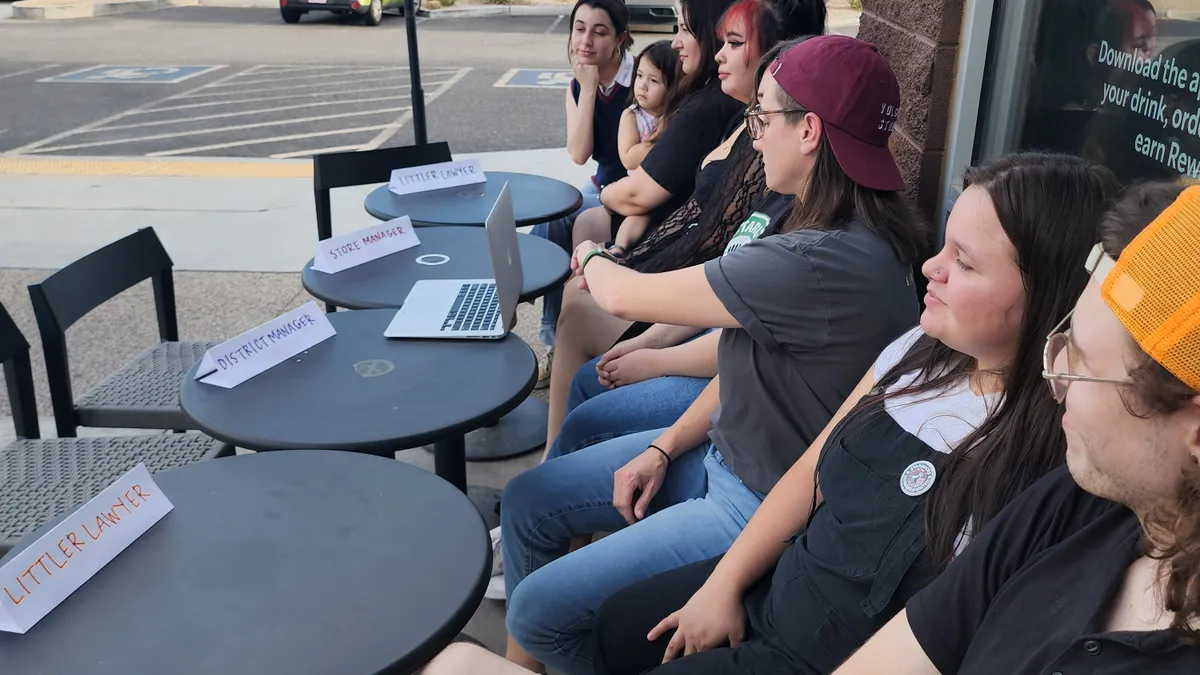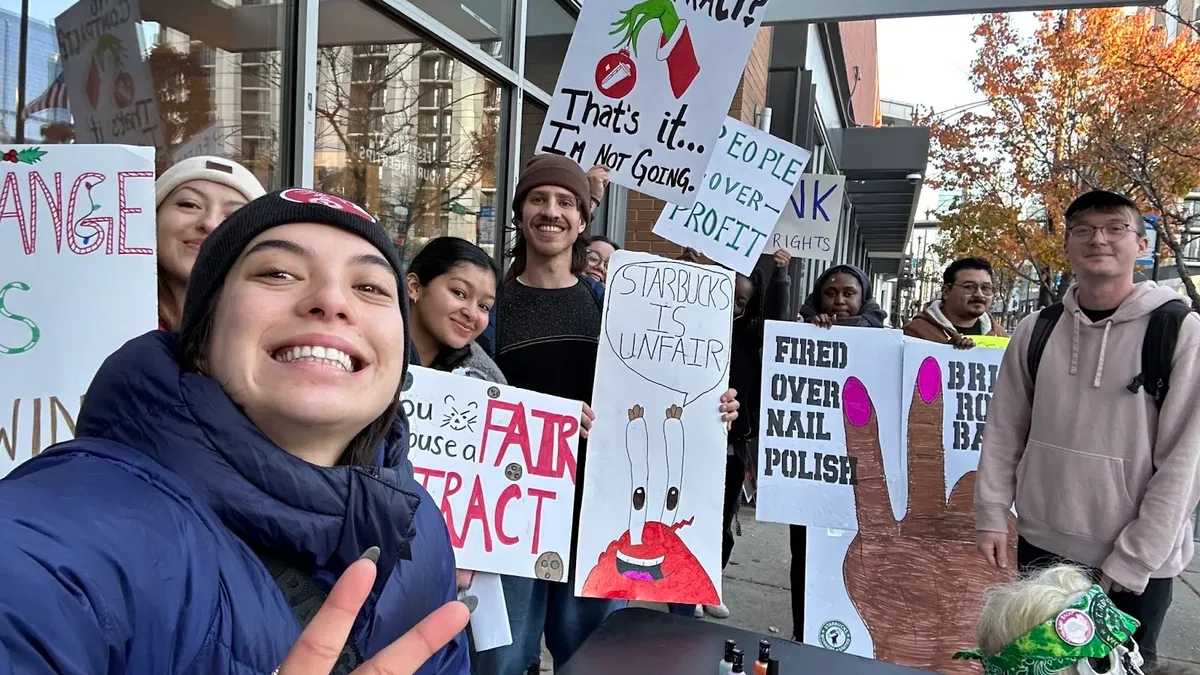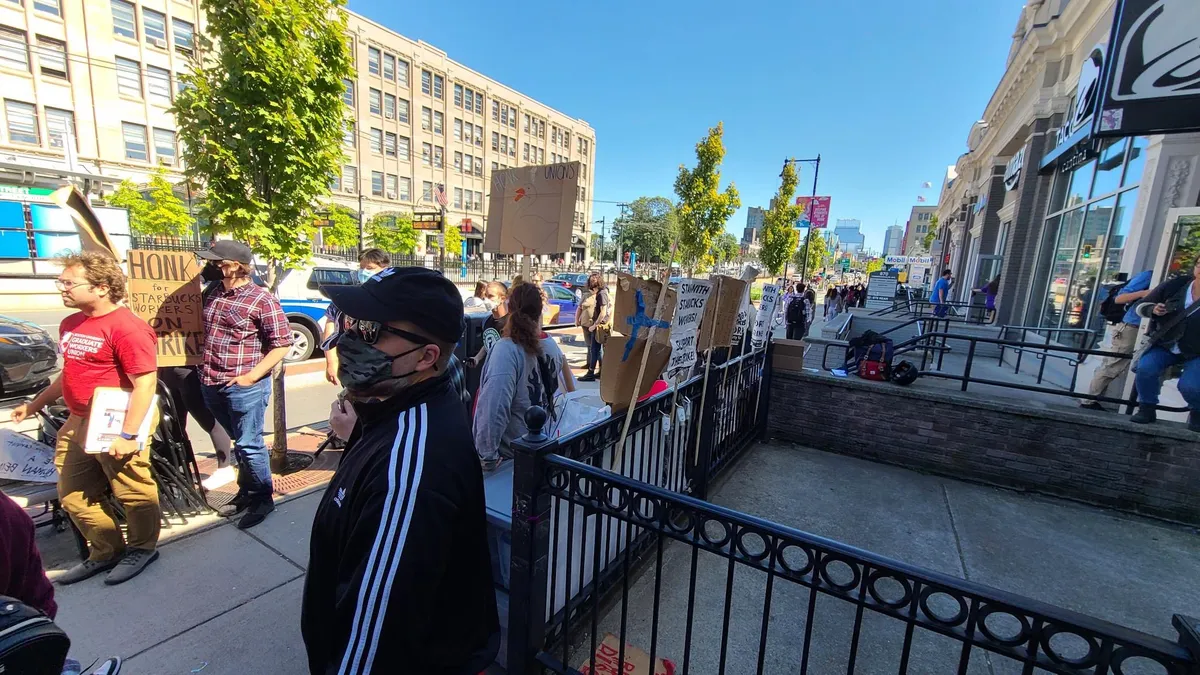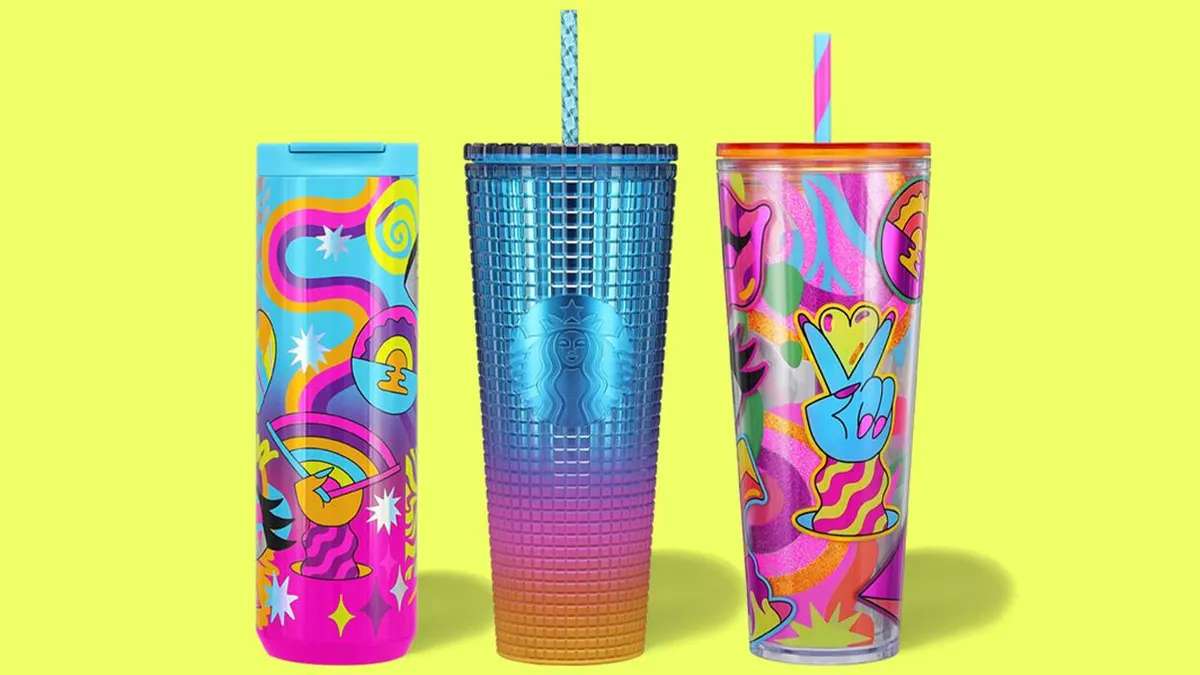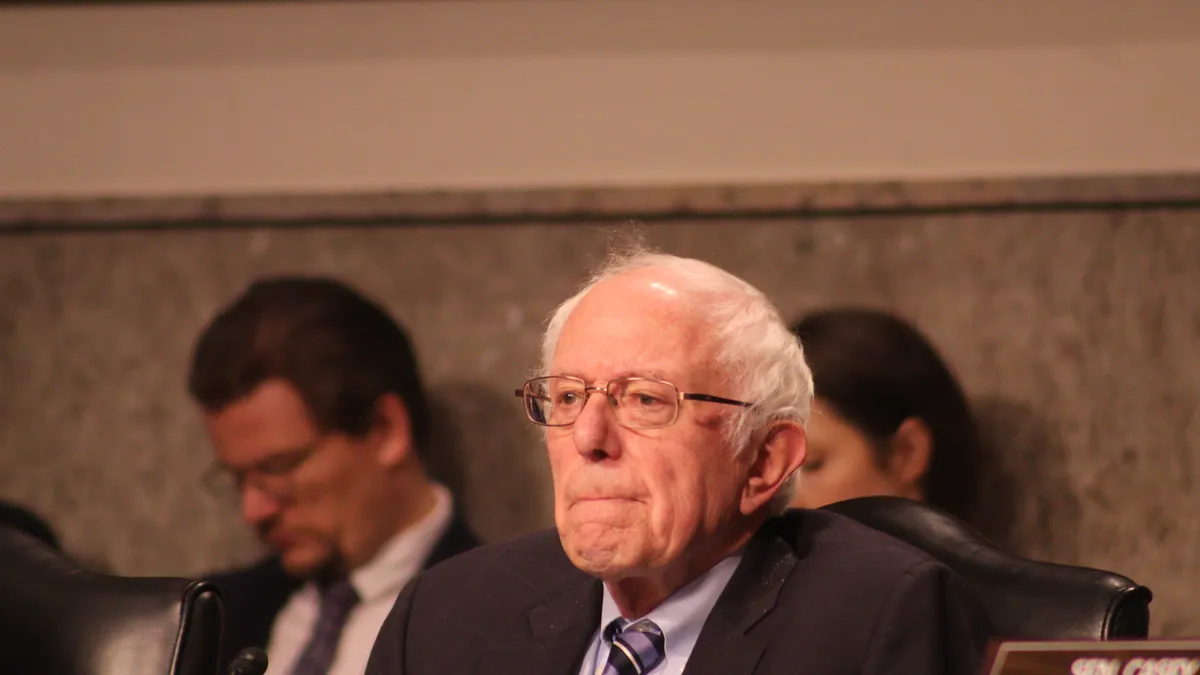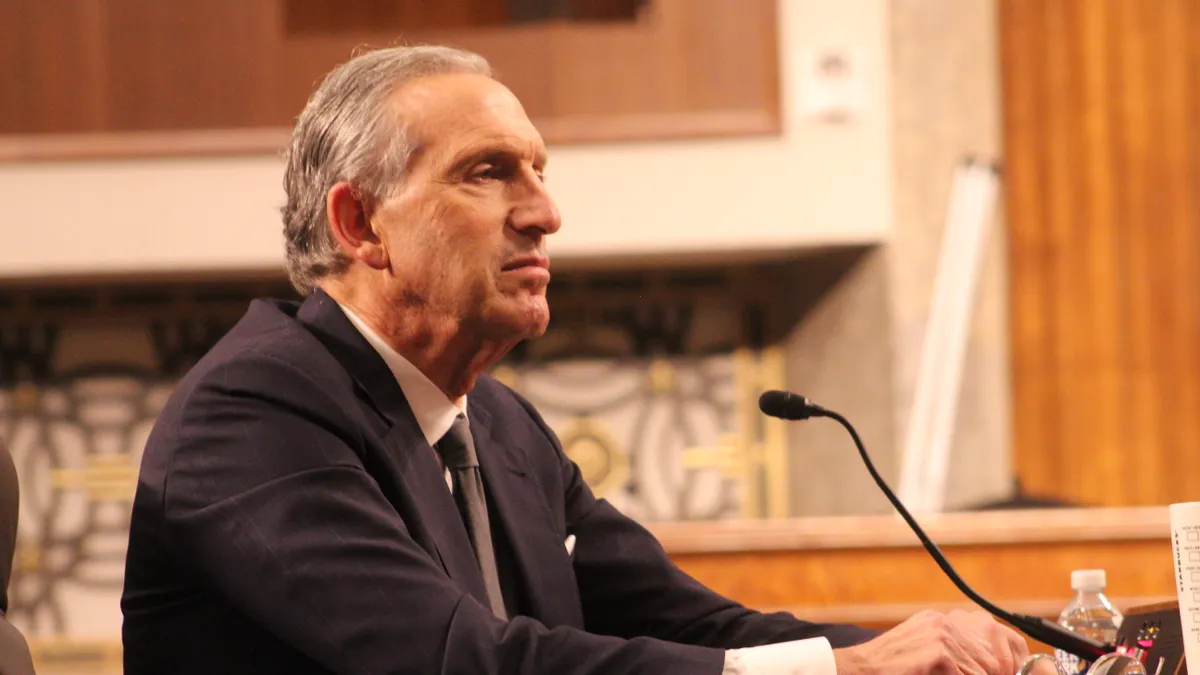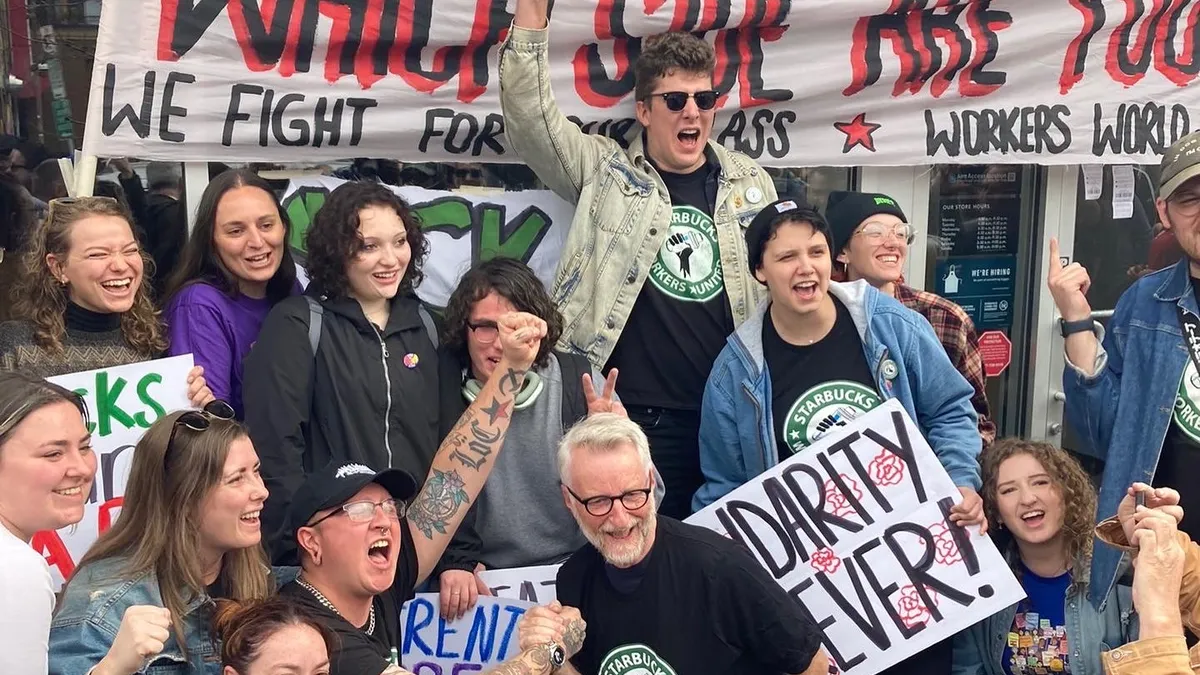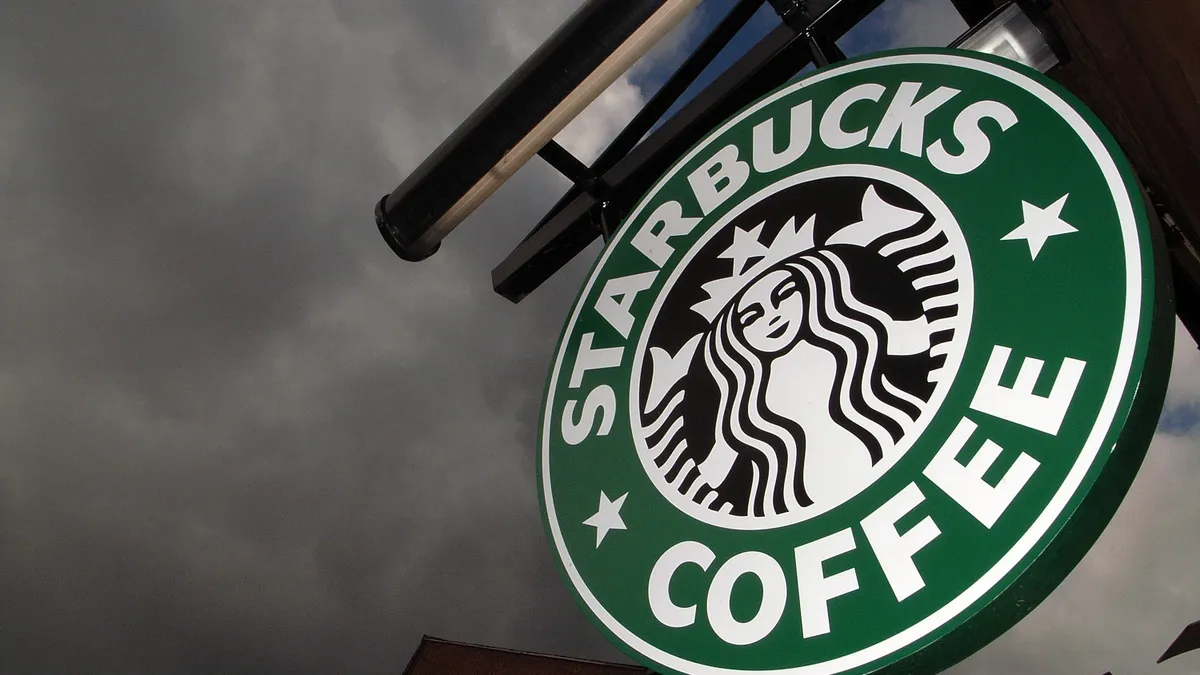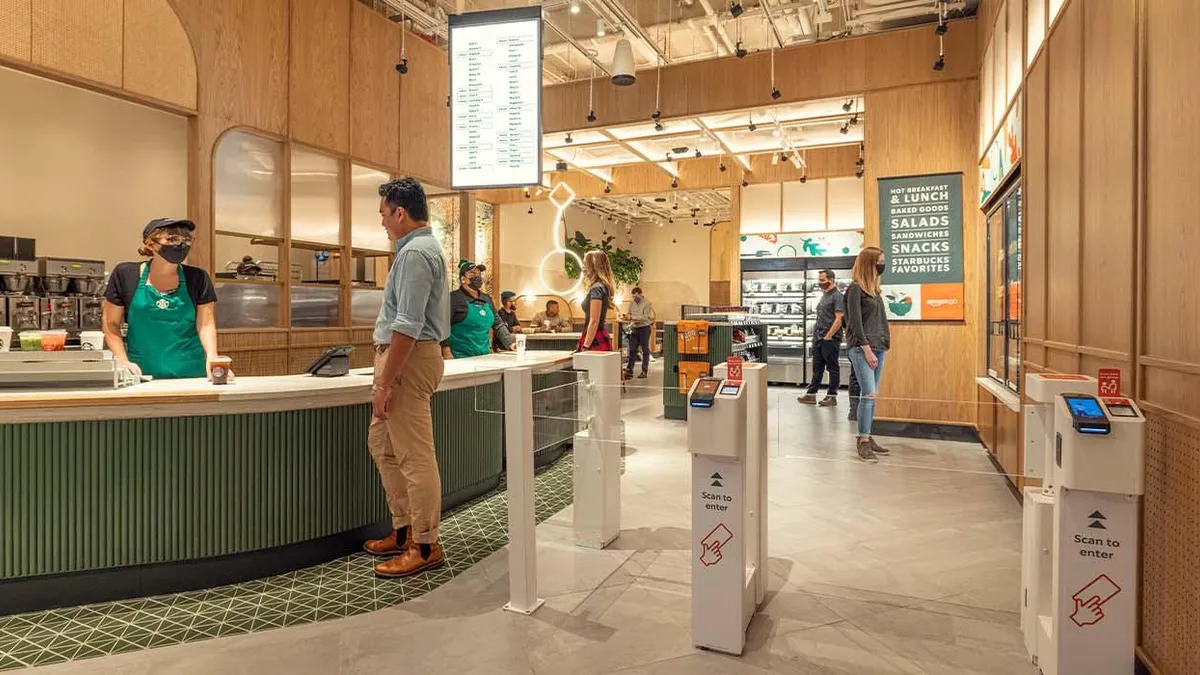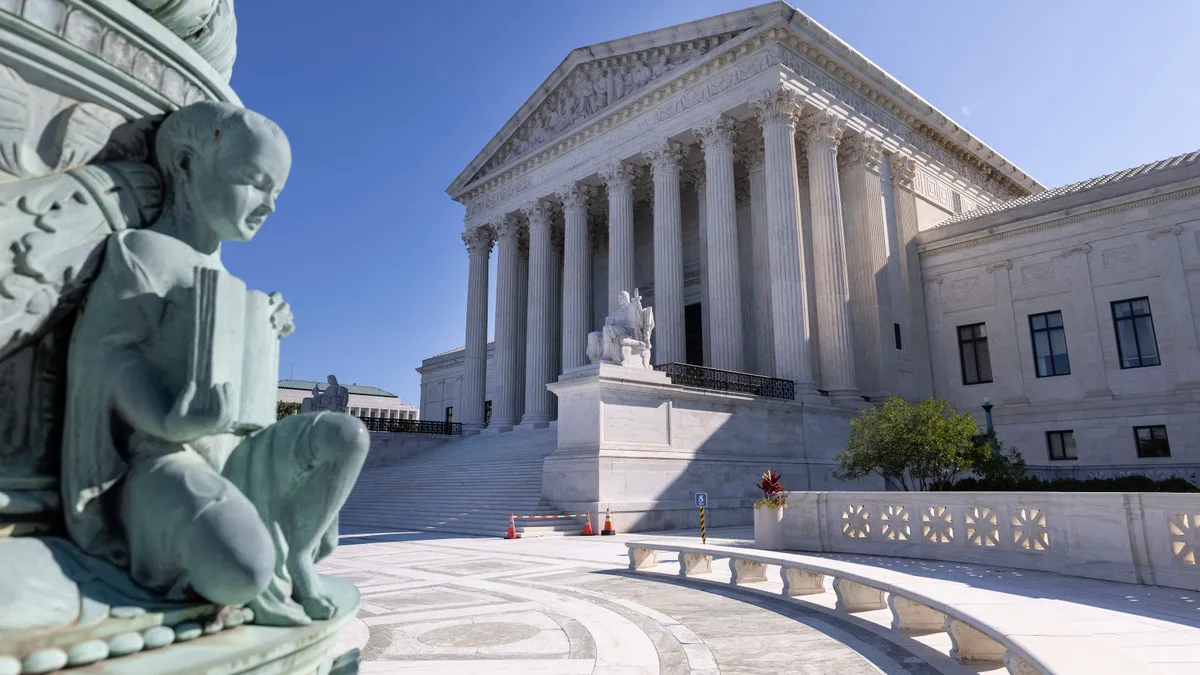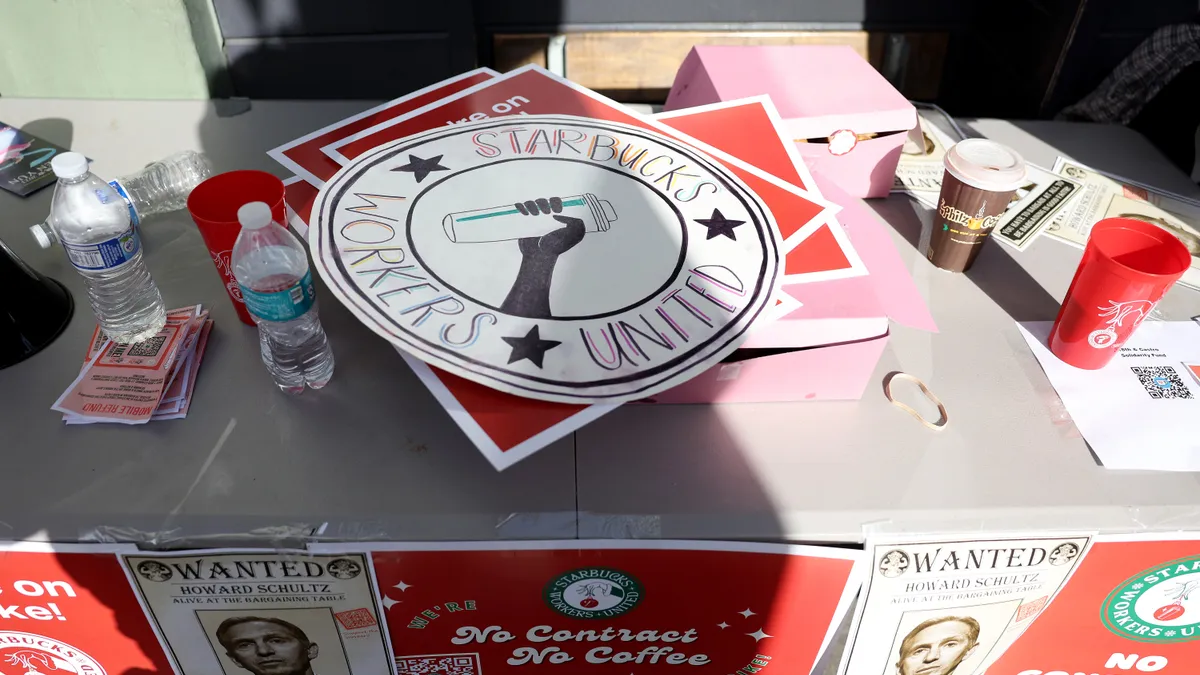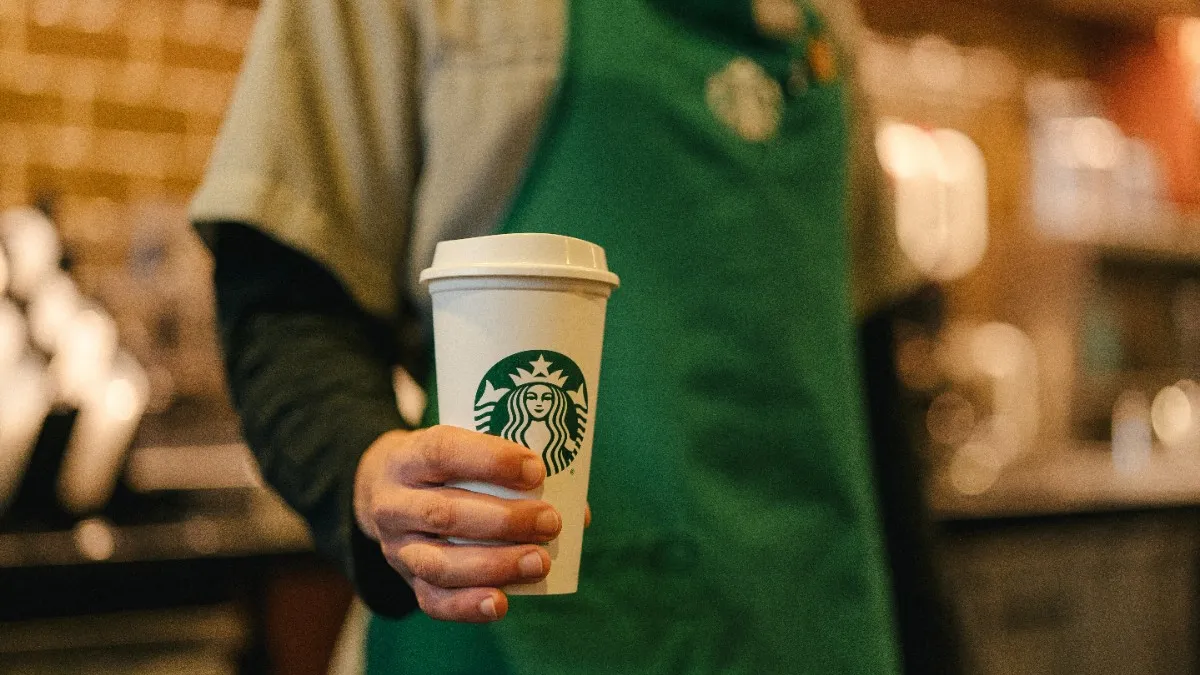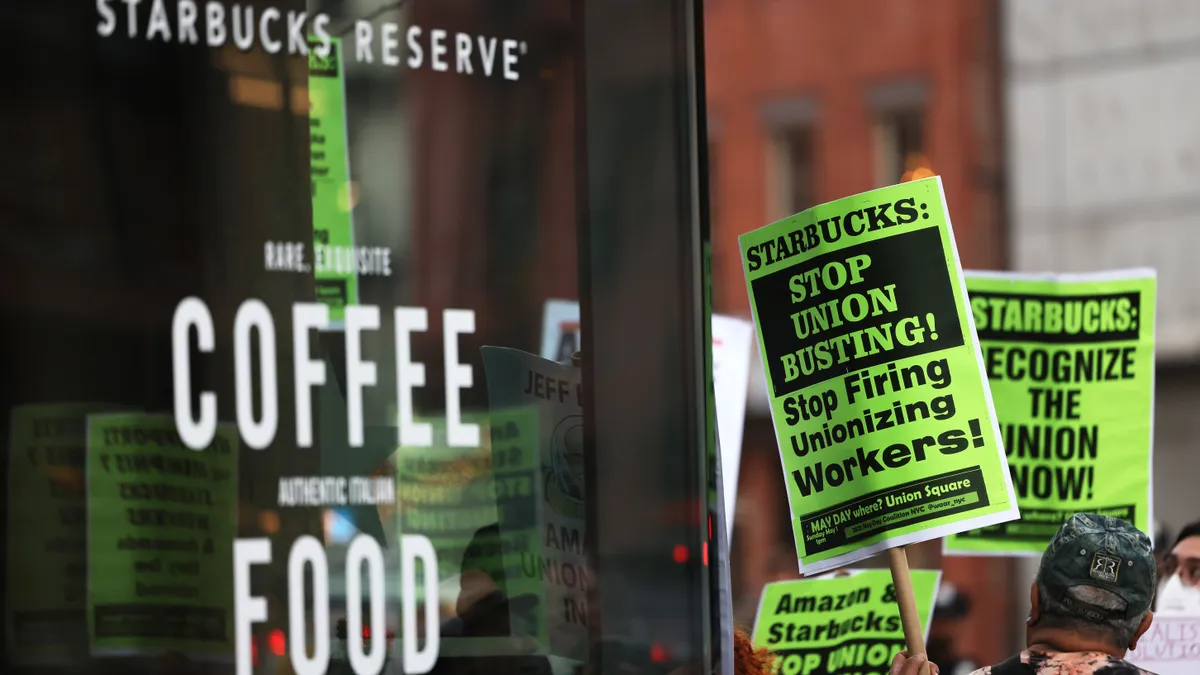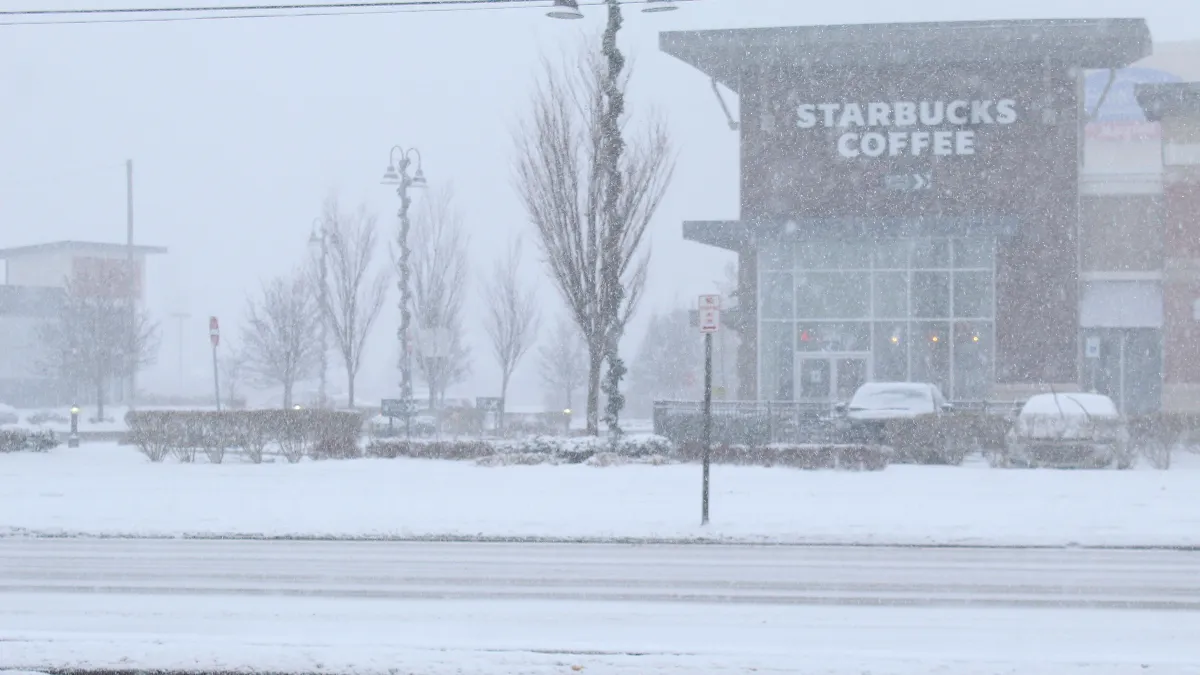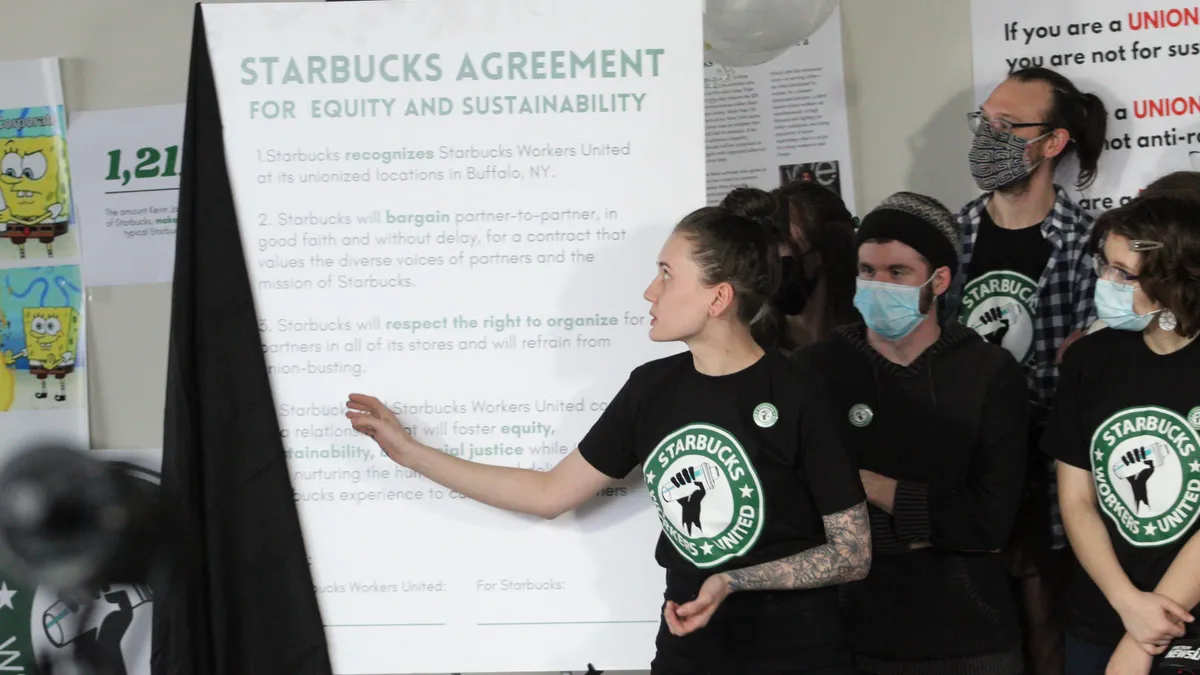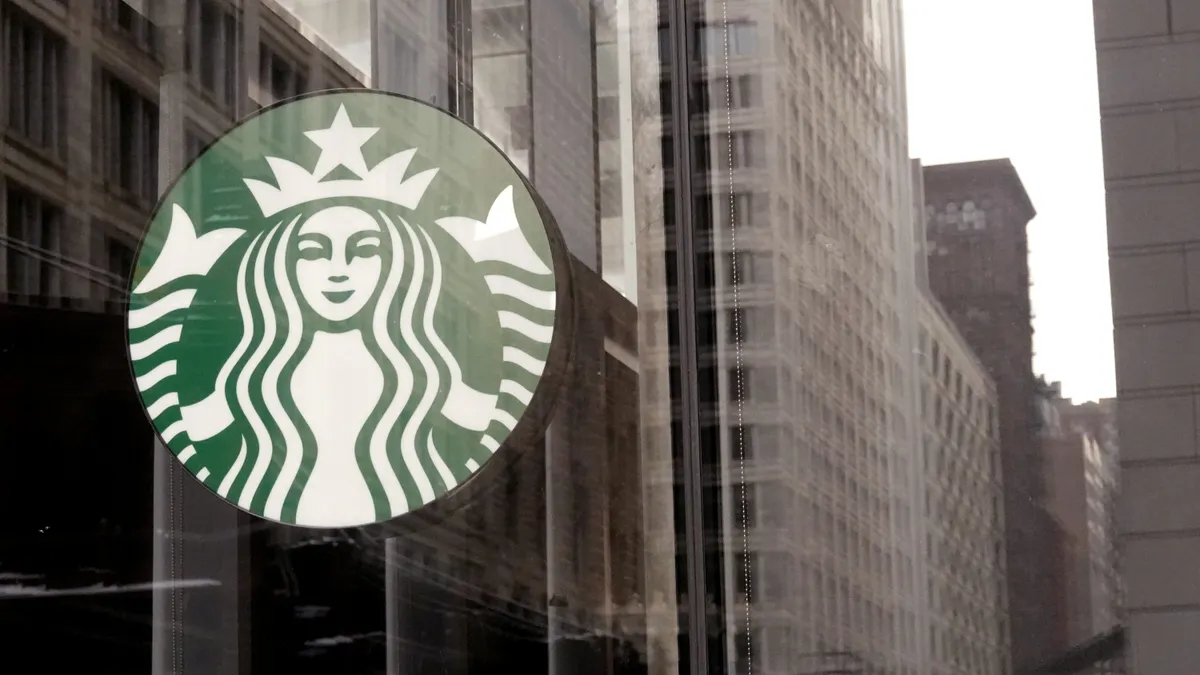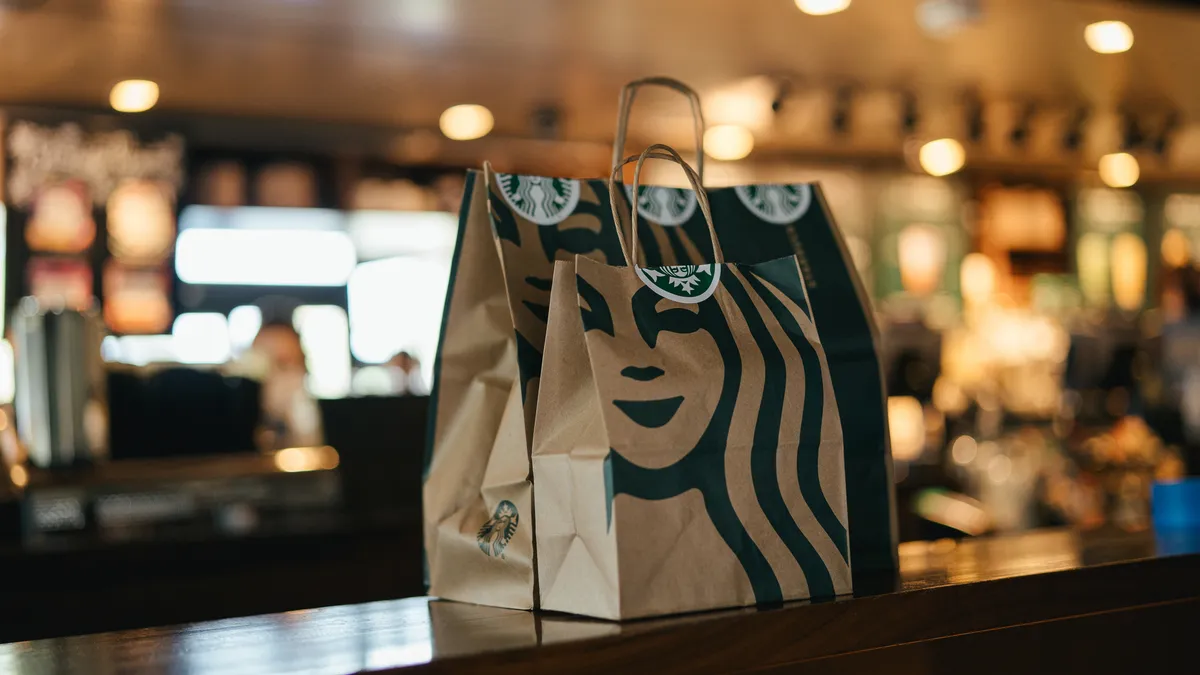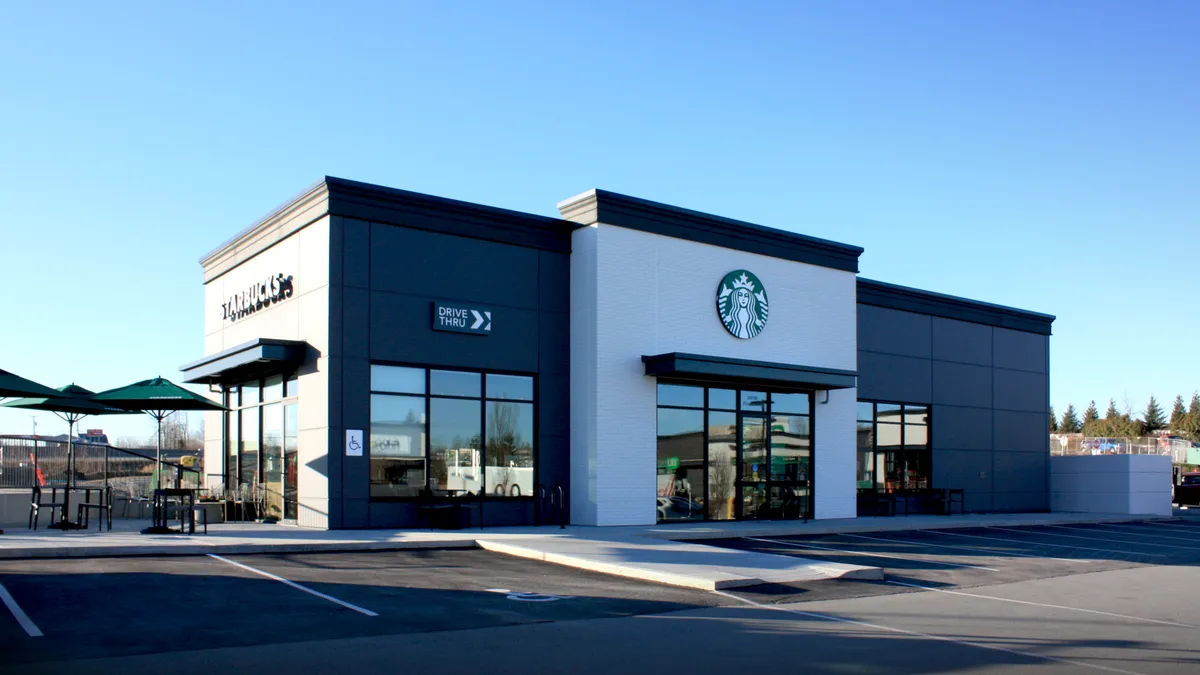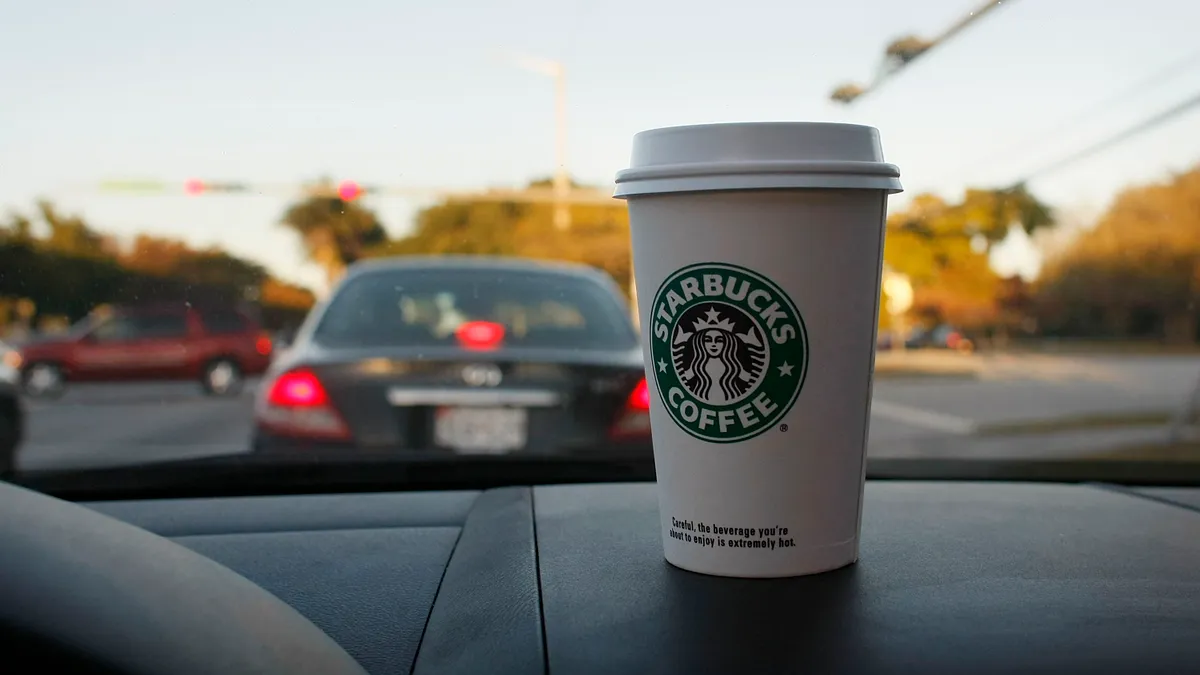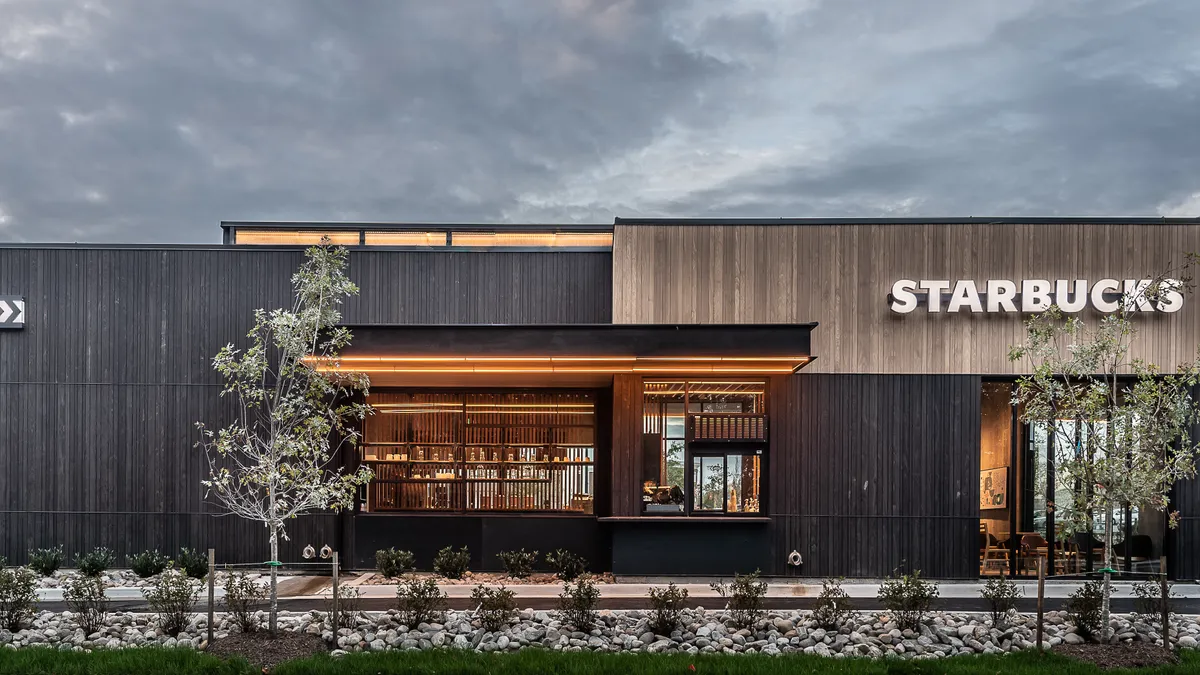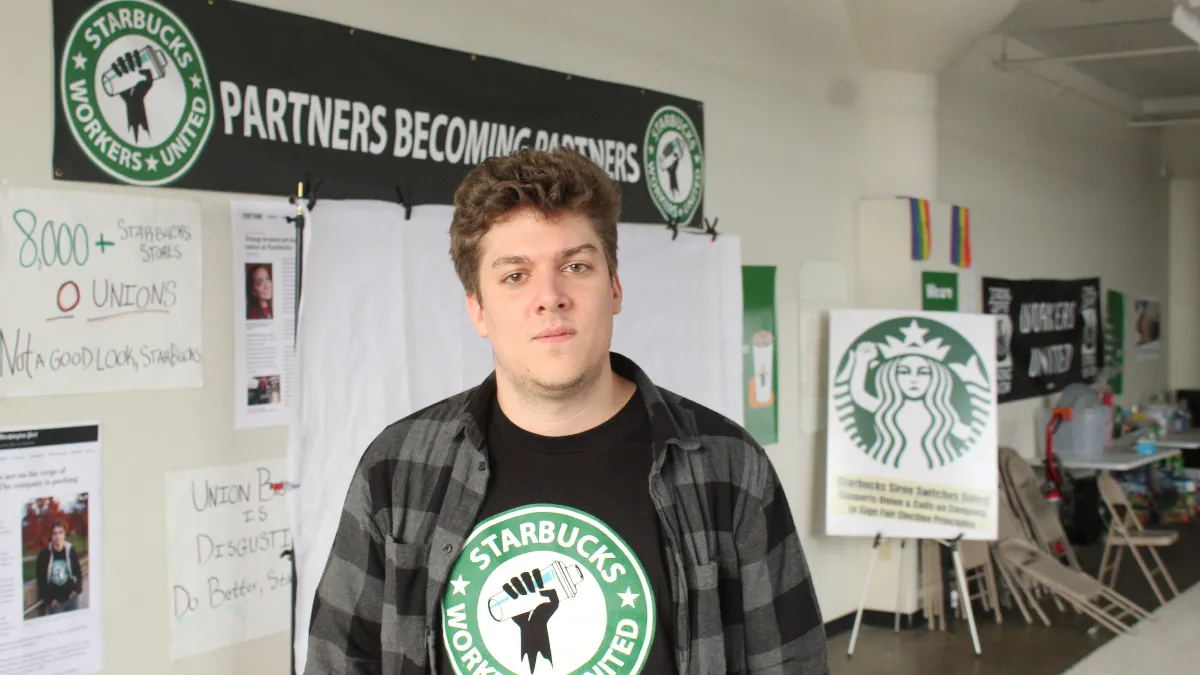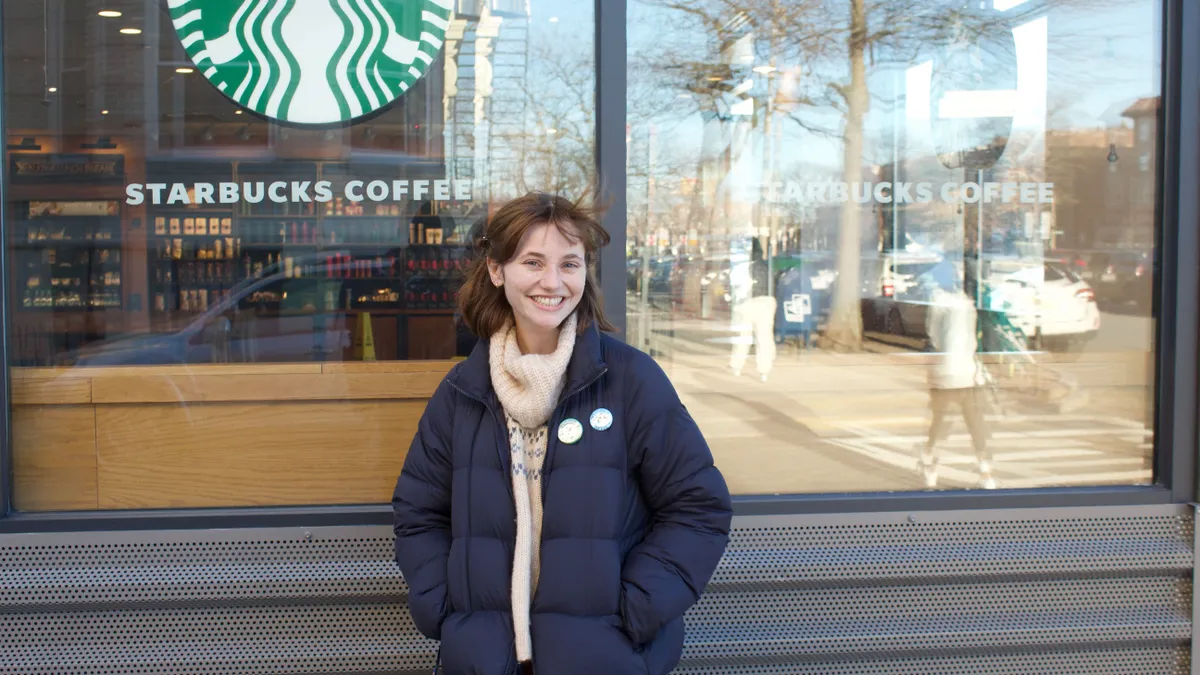Over the last year, Starbucks employees told Restaurant Dive about small problems disrupting their work — issues such as an unclean grease trap, threatening customers, deluges of mobile orders, bees in stores, lack of emergency planning and managers who took down Pride paraphernalia. These problems pushed them to ask for changes, unionize or, in some cases, strike.
For the workers and organizers participating in the campaign, the process has often proven personally transformative. The Starbucks employees who spoke to Restaurant Dive tend to be younger, ranging from 17 to 37 in age, and are often college-educated or are attending Starbucks for its college benefits.
“It made me stronger,” Aleah Bacetti, a union organizer who was fired for what Starbucks described as “use of harassing or abusive language,” said. “I endured racism and harassment by my peers, by my management team. And even though I was fired, I overcame it. And my union is still going strong, and we won. We got our certification. And we're bargaining.”
For younger workers, the campaign has become a way to connect with others. Sam Shields, a barista in Washington, D.C., who sings opera off the clock, said she feels like she’s a leader now. Megan Brown, a Starbucks Workers United national bargaining committee member in Illinois, found a calling.
“This is just what I want to do with my life. I really enjoy advocating for workers’ rights, and bargaining contracts, and all of this,” said Brown, who is still in high school.
Casey Moore, a Buffalo, New York-area barista who delayed law school to throw herself into organizing, said the factors that drove the campaign haven’t dissipated. The physical intensity of barista labor reaggravated back injuries she sustained in a car crash, and gave her new injuries, requiring her to wear a wrist brace to deal with pain caused by the job. The nature of QSR labor itself, which combines physical difficulty with emotional performance, also drove Moore to push for a union contract.
“When I was a waitress, for example, I had a bit more incentive to be nice to people so they [tip] you,” Moore said. “No matter how nice I am to people, they're still going to be awful to me here. And I'm still gonna leave [for] home with the same amount of money at the end of the day.”
For her, the campaign has offered a way to deal with that drudgery.
“I'm doing things that I never thought that I would do,” Moore said. “It's super empowering, and fun and scary.”
Other workers have seen the campaign transform their lives. Julie Langevin, a Starbucks shift manager and member of SBWU’s national bargaining committee, has worked at Starbucks for 17 years. Though her store lost its election, she has found a sense of meaning in the campaign.
While the union campaign is seeking changes that would impact corporate culture and labor relations, Starbucks Workers United members are also seeking changes at the store level. With bargaining organized and led by workers, SBWU’s proposals often focus on specific changes to systems that workers interact with all day, every day. These are some of the topics workers mentioned as personal priorities in contract negotiations.
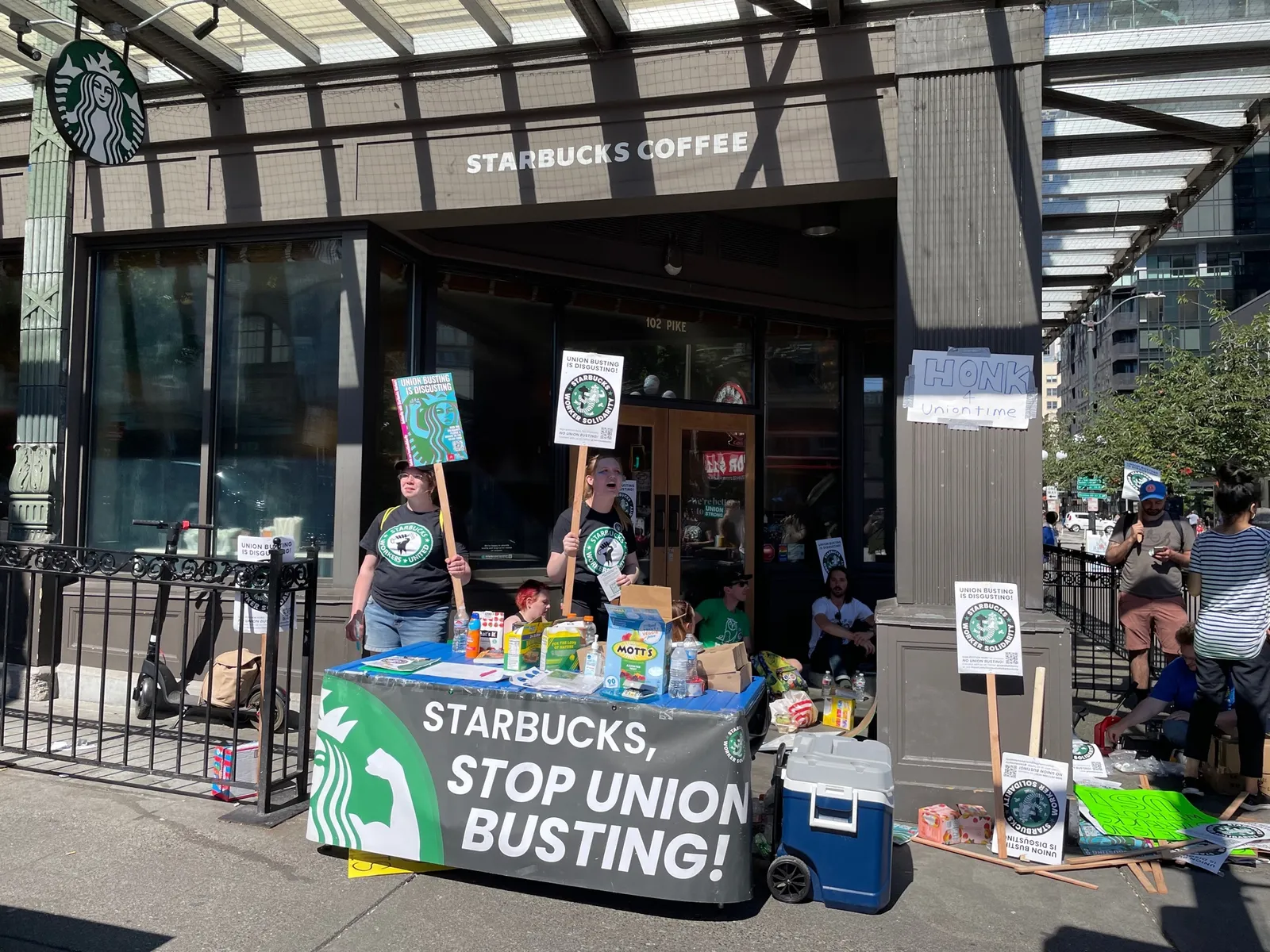
1. Wage hikes
Every worker Restaurant Dive interviewed about contract demands mentioned wages. These baristas want Starbucks to pay its employees more by basing compensation on living wages in different regions. But most said pay hikes aren’t an immediate priority compared to operational changes at stores.
2. Ability to turn off mobile ordering
Currently, Starbucks stores can’t shut down mobile orders without direct permission from a manager and a district manager, according to Langevin. Customers can grow frustrated with the wait times, but there’s nothing workers can do, she said.
“We have to ask permission to turn mobile [ordering] off when we're drowning, when we have a wait time of 40 minutes on our line, and we have customers standing there asking, ‘Where's my drink,’” Langevin said. “We're not allowed to turn that off because it cuts into Starbucks’ bottom line.”
3. Improved equipment
For workers at the 1429 P Street Starbucks location in Washington, D.C., the union campaign is about safety and functioning equipment. Tae Cunningham, a barista and SBWU member, said he wants to see the company fix equipment in a timely manner.
“It always [breaks] on a day where we need it the most. A day where every customer wants a specific item, but we just can't make it,” Cunningham said.
When the P Street location’s cold brew machine broke down earlier this year, Starbucks didn’t fix it for over a week, Cunningham said. This led customers to get frustrated or become confrontational with workers. Worse, Cunningham said, the machine didn’t function properly even after the repair, and it took the company two months to replace it.
Sam Shields, who also works at the P Street Starbucks, said she wants her store to be renovated. The store is a small location on the first floor of an apartment building. Shields and Cunningham both emphasized the cramped nature of the work. Shields wants other minor changes, like soft-close cabinets that would prevent painful injuries.
For many, smaller proposed changes like this are part of a transformational promise by the union, that employees can exercise power together, rather than relying on sending reports up the corporate chain in the hopes of change.
4. Fewer out-of-pocket uniform expenses
Kylah Clay, a barista and organizer in Boston, wants Starbucks to wash the aprons it provides to her. Clay has two aprons the company gave her, but in Boston at least, Starbucks does not launder aprons for workers. In Clay’s experience, the company rarely has backup aprons at her store. Clay wants the company to buy union-made aprons and wash them at unionized industrial laundries.
“We have to wash our own aprons. It's not the biggest deal of all things, but these things get dirty so quickly,” Clay said. In Boston, where a single load at a laundromat can cost $5, this can absorb a good chunk of workers’ pay. Clay makes about $15 dollars an hour, slightly more than the Massachusetts minimum wage of $14.25.
Bacetti wants Starbucks to pay for non-slip shoes. The company’s dress code asks employees to wear non-slip shoes made of nonporous materials, as is common in foodservice settings. But Starbucks does not reimburse workers for the expense.
“If you're going to ask for people to wear non-slips you should provide that, like, if it is going to be a safety measure, provide that. Don’t cop out to be cheap,” Bacetti said.
Langevin, who is a shift manager in Massachusetts, said the non-slip issue can make it hard for new workers, who have to pay for dress code-compliant clothing and equipment before receiving any pay from the company.
5. COVID-19 leave
Workers have criticized Starbucks’ COVID-19 and emergency responses since the start of the union campaign. Now that Starbucks has ended COVID-19 catastrophe pay and many other emergency protections, SBWU members want the company to improve its sick leave policies and overall planning for emergencies.
Clay said Starbucks’ COVID-19 leave policies are inadequate, sometimes leaving sick workers responsible for finding coverage for their shifts when they run out of paid sick leave. Starbucks said workers with COVID-19 can take short-term disability if they have no more sick days. But Clay said workers’ ability to receive a leave of absence depends on healthcare providers, and that the length of leave time can be limited.
“I just want to make sure that people can take the time that they need to get healthy again,” Clay said. “If people can't return to work right now, they should be able to take a protected leave.”
At the start of October, Starbucks discontinued self-isolation pay, vaccine pay and side effects pay. Starbucks ended those benefits without bargaining with SBWU, but said it had no obligation to bargain over those changes because the COVID-19 benefits and catastrophe pay offered to workers were always intended to be temporary.
Workers want to hold Starbucks accountable to progressive values
The campaign has changed many workers’ relationships with Starbucks, and many see the union drive as a way to make the company live up to its self-professed progressive values.
“We started this campaign saying, we love Starbucks,” Moore said. “It's very hard to say that now after seeing everything that they've done.”
Langevin said that when she started at the company in 2005, its benefits and pay really were superior to what other foodservice jobs offered. She also found it to be a welcoming place that met people’s needs.
“I refer to myself as somebody who drank the Starbucks Kool-Aid real early,” Langevin said. “I really, really thought that Starbucks’ values were the heart of the company, and they tried to honor those. And I do not believe that at all anymore. ... I still strive to reach and meet those values. But I know that it's not coming from higher up, and that just hurts.”







